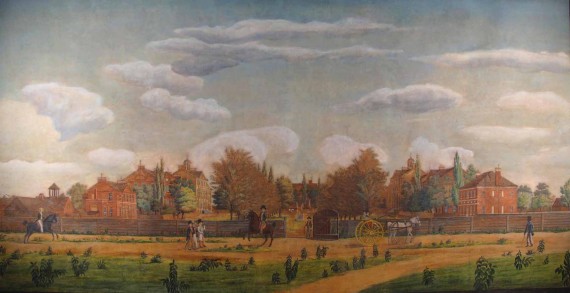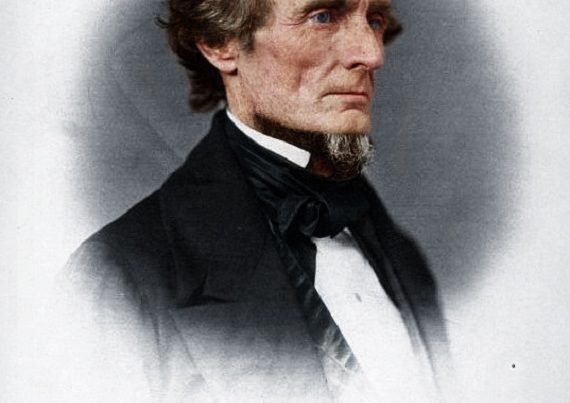Originally published at www.circa1865.com
In 1887 North Carolina’s Lieutenant-General Daniel H. Hill spoke of the American Republic and the men who founded, led and sustained it until a revolutionary movement ended its life after some eighty years. Shorn of the conservative South after 1861, the Northern government descended into political corruption, the Gilded Age, incessant warfare and moral depravity.
The South the Genesis of American Independence
“With rare magnanimity, Southern congressmen had voted for protective tariffs, fishing bounties, and coast-trade regulations, which did so much to build up the big cities and great commerce of the North and to fill its coffers to overflowing. Even Mr. Calhoun had voted to protect “infant industries,” believing that the infants would in the course of time learn to crawl and walk, and do without pap. But that time has not yet come.
Thomas Prentice Kettell, a Northern man, estimates that in these three ways the Old South contributed from 1789 to 1861, $2,770,000,000 of her wealth to Northern profits. Our statesmen knew, surely, that their own section would never get one dollar in return from this enormous expenditure. But they were patriotic enough to be willing to make the nation rich and prosperous, even at the expense, for a season, of their own beloved South.
My countrymen! That Old South was a generous Old South. The world scoffs at generosity and says, “it don’t pay.” The Old South believed with a wise man that “A good name is to be chosen rather than great riches, and loving favor rather than gold and silver.”
Mr. Bancroft [in his History of the United States] says: “American Independence, like the great rivers of the country, had many sources, but the head spring which colored all the stream was the [British] Navigation Act.”
The whole of New England was in a blaze of fury because of it. The effect of upon their commerce and shipping interest was disastrous, and they believed that ruin impended over them. The Old South denounced the Navigation Act, which did not hurt its interest at all, just as severely as it did the Stamp and Revenue Acts. All were blows at the inalienable rights of freemen, and all were alike opposed.
Christopher Gadsden of South Carolina, in a speech delivered in Charleston in 1766, advocated the independence of the Colonies, and he was the first American to proclaim the thought. The first American Congress met in Philadelphia on the 7th of October, 21774. Peyton Randolph of Virginia, was elected President of that body.
On the 20th of May, 1775, the Scotch-Irish of Mecklenburg County, North Carolina, absolved all allegiance with the Crown of Great Britain, and set up a government of its own. On the 12th of April, 1776, the Provincial Congress of North Carolina took the lead of all the States in passing resolutions of independence. On the 7th of June of that year, Richard Henry Lee of Virginia moved, “These united Colonies are, and of right ought to be, free and independent States.”
It was upon this motion that the separation from Great Britain took place. It was a Virginian who wrote the Declaration of Independence. It was a Virginian who led the rebel armies to victory and to freedom. It was a Southerner — Charles Pinckney of South Carolina — whose draft of the Constitution was mainly adopted.
Thus independence was declared on the motion of one Southerner; its principles were set forth in the Declaration by another Southerner. A third led the armies of the rebel colonies to victory, while a fourth framed the Constitution, which though denounced at one time by the South-haters as “a covenant with death and a league with hell,” has lived for one hundred years, and is likely to live for hundreds more.
You . . . need not be ashamed of your ancestors and blush that they lived in the Old Bourbon South. That Bourbon regime lasted for eighty years, the grandest and noblest of American history. Eleven of its seventeen Presidents were of Southern birth. Fifty-seven of the eighty years were spent under the administration of Southern-born Presidents. Washington, Jefferson, Madison and Monroe, each served eight years, in all forty years — just one half the life of the nation.
Of the six Northern Presidents John Quincy Adams was elected by the House of Representatives and not by the people, and contrary to the wishes of the people. Nor was Mr. Fillmore elected to the Presidency, but on the death of General Taylor succeeded to the office . . . So during the existence of the Old South, John Adams, Van Buren, Pierce and Buchanan were the only Northern Presidents elected by the people. Another curious fact is, that every Northern President had associated with him as Vice President a man from the Old South.
[The Cape Fear Stamp Act resistance in 1765] was nearly ten years [before] the Boston tea party assembled, when a number of citizens, disguised as Indians, went on board a ship and threw overboard the tea imported in her. This was done in the night by men in disguise, and was directed against a defenseless ship. But the North Carolina movement, ten years earlier [in Wilmington], occurred in open day, and was made against the Governor [Tryon] himself, ensconced in his palace, and by men who scorned disguise” (Senator Clingman).Every schoolboy knows of the Boston tea-party of 1773; how many of my intelligent audience know of the Wilmington party of 1765? Yea, verily, the Old South has sorely needed historians of its own.”
(Address by Lt. General D.H. Hill on Memorial Day, June 6th, 1887 at Baltimore, before the Society of the Army and Navy of the Confederate States)







